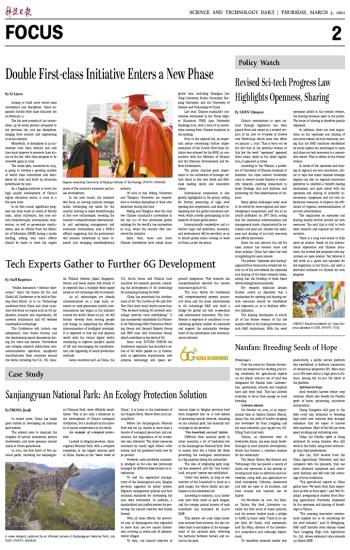
 |
| UNESCO Recommendation on Open Science adopted in 2021. (PHOTO: VCG) |
China's commitment to open science through legislation has been placed front and center in a revised version of its Law on Progress of Science and Technology, which came into effect on January 1, 2022. This is born out by the fact that in the previous version of this law the word "openness" appeared three times, while in the latest legislation, it appeared 15 times.
According to Yan Wenjun, a professor of University of Chinese Academy of Sciences, the open science movement aims to remove access barriers to scientific research, enabling researchers to share findings, data and facilities, and promoting the free dissemination of science.
Many global challenges today need to be solved by cross-regional and interdisciplinary cooperation, said Yan in an article published on S&T Daily, noting that the traditional communication and management mode, characterized by seclusion and paid use, hinders the openness and sharing of sci-tech resources and affects innovation.
Since the 21st century, the call for open science has become more and more popular. China has taken the lead in legislating for open science.
The phrase "openness and sharing" appeared four times in the revised law. Article 24 of the law stresses the openness and sharing of the basic research bases, saying that the building of these bases will be strengthened nationally.
For research institutes already funded, article 54 stipulates that a mechanism for opening and sharing sci-tech resources should be established and improved, so as to facilitate effective utilization.
The sharing mechanism in article 46 of the former version of the law mainly refers to the sharing between sci-tech R&D institutions. With the word openness added in the revised version, the sharing becomes open to the public. The scope of sharing is therefore greatly expanded.
In addition, there are new regulations on the openness and sharing of non-state-owned sci-tech resources, noting that the R&D institutes established by social capital are encouraged to open and share sci-tech resources to a reasonable extent. This is absent in the former version.
In terms of the openness and sharing in regional sci-tech innovation, article 77 says that major national strategic regions can rely on regional innovation platforms to establish a benefit-sharing mechanism, and push ahead with the openness and sharing of scientific instruments, equipment and sci-tech information resources, to improve the efficiency of regional commercialization of sci-tech achievements.
The regulations on openness and sharing mainly revolve around sci-tech resources. Yan said this is vital to both basic research and regional sci-tech innovation.
There is a long road ahead to fully open up science. Based on the international experience and Chinese situations, the revised law proposed new regulations on open science. Yan believes it will work as a guide and standard for law legislation in the future, and exert a profound influence on Chinese sci-tech progress.


 Next
Next




